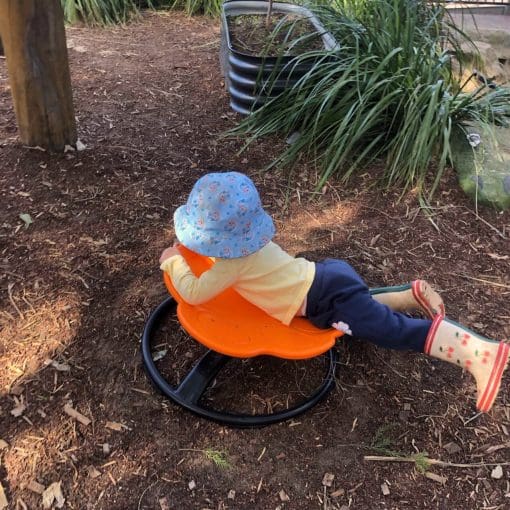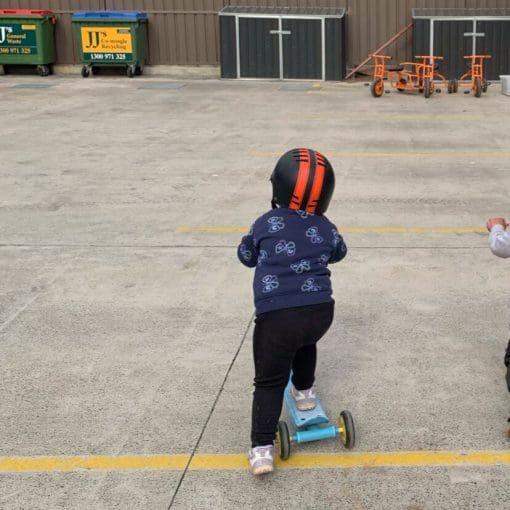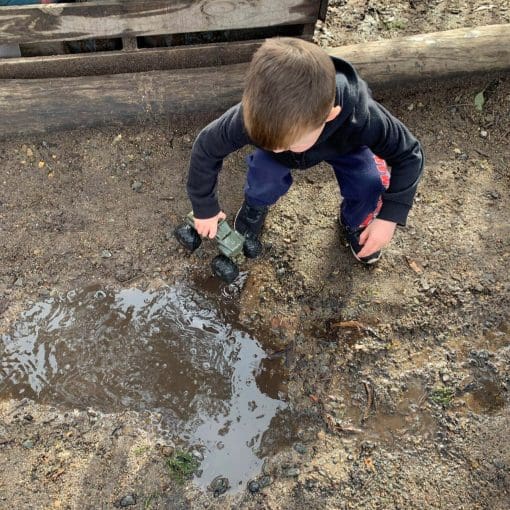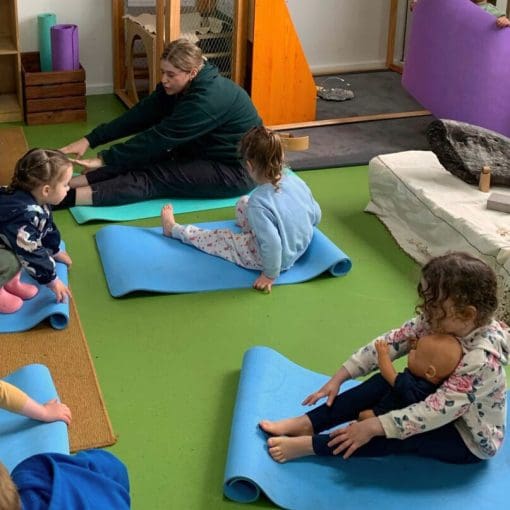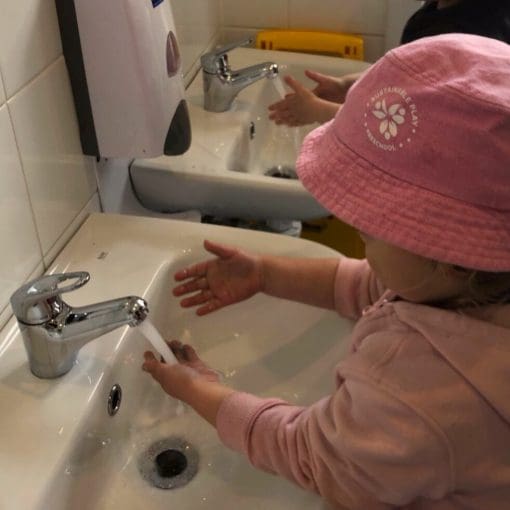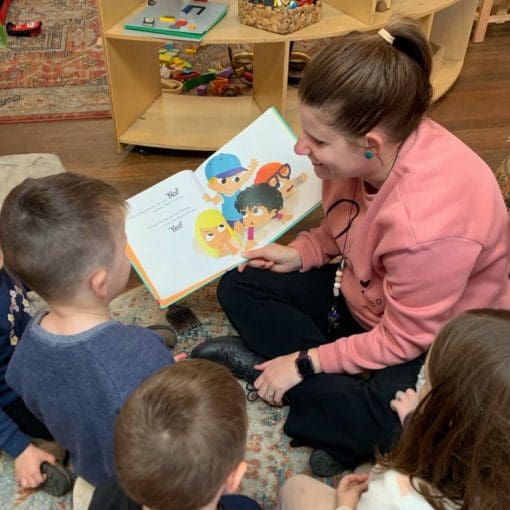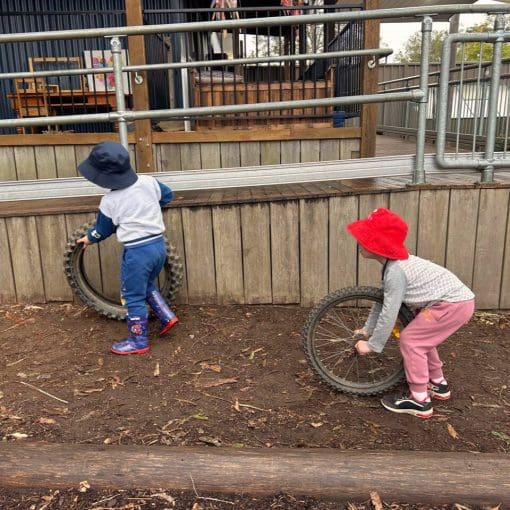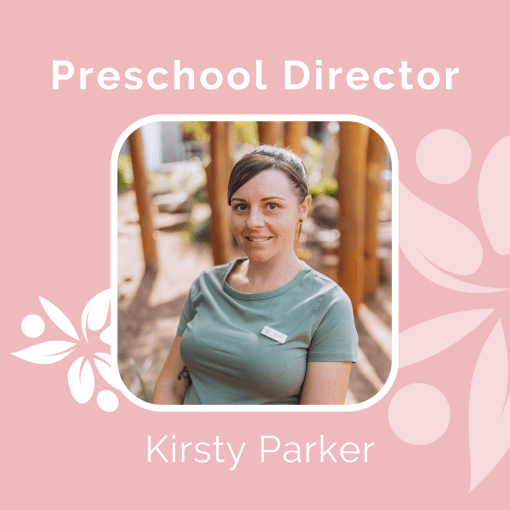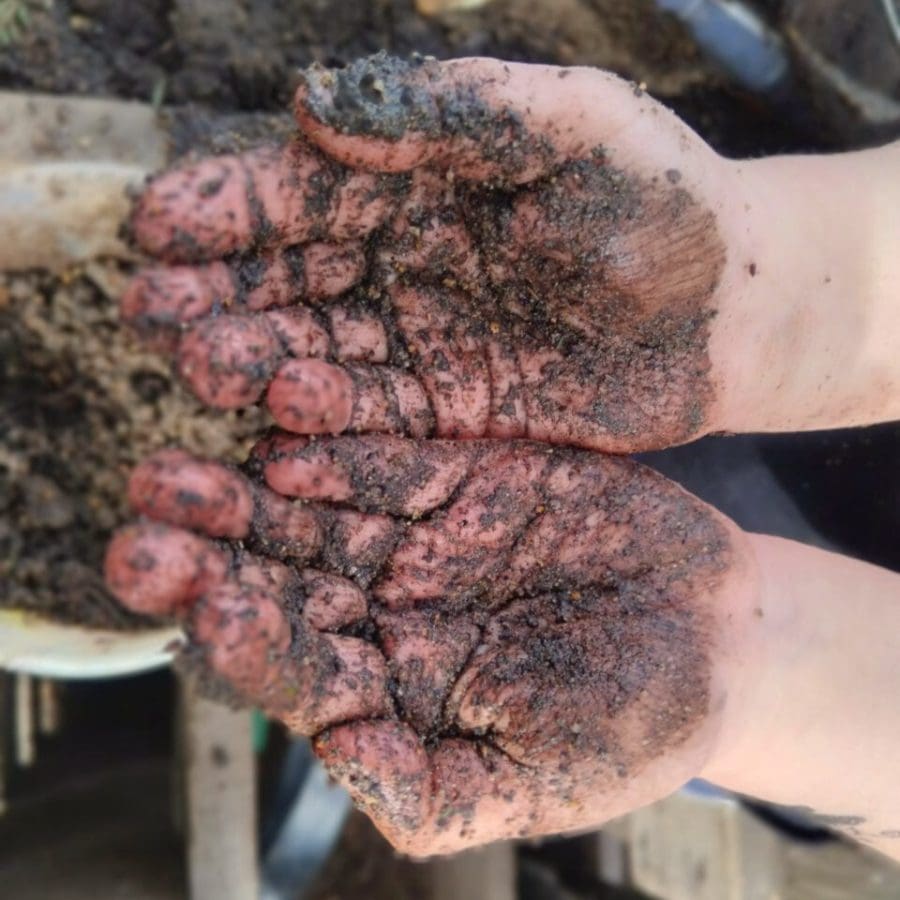
Inclusive Practice and Sensory-Supportive Learning Environments
At Sustainable Play Preschool, we are deeply committed to creating an inclusive and supportive environment that nurtures the unique developmental needs of every child. Our learning spaces are intentionally designed to foster regulation, engagement and connection, which empowers all children to thrive.
Thoughtfully Designed Learning Environments
Indoor Sensory Zones
Our indoor environment features clearly defined visual boundaries, quiet corners and sensory zones to promote both self-regulation and co-regulation. These areas are resourced to allow children to independently access sensory tools that support their emotional and physical regulation.
Resources include:
- Noise-cancelling headphones
- Fidget Tools
- Flexible seating options such as wobble cushions, floor cushions and sensory pods
These tools empower children to choose what they need in the moment to feel calm, focused, and regulated.
Outdoor Sensory Zones
Our outdoor play areas provide rich opportunities to support vestibular and proprioceptive development through movement-based experiences including:
- Sensory spinning chairs
- Controlled heavy work activities (e.g. sock wrestles)
- Tree climbing and opportunities for inversion (e.g. hanging upside down)
- Scooter and bike riding
These activities are facilitated in a safe and supported manner, helping children build body awareness and regulate through movement.
Educator Practices that Support Sensory Integration
Our educators use intentional, evidence-informed practices to foster sensory integration, supporting development across all domains, particularly physical, cognitive, and emotional.
Sensory-Based Play Activities
- Tactile: finger painting, sand or mud play
- Vestibular (movement): Swinging, spinning, jumping
- Proprioceptive (body awareness): Pushing heavy objects, animal walks, obstacle courses
- Tools: Sensory bins, weighted blankets, balance boards
Observation and Responsive Report
- Identify individual sensory sensitivities or seeking behaviours
- Adjust the environment and materials as needed
- Collaborate with families and allied health professionals
Embedding Movement and Regulation
- Daily brain breaks, yoga, dancing, and gross motor outdoor play
- Use of calming tools such as sensory zones, quiet corners, fidget toys, and breathing exercises
- Support children in recognising and naming their emotional and sensory states
Language and Routines
- Model rich descriptive language around sensory experiences
- Turn routines into sensory learning moments (e.g. hand-washing, transitions)
- Use tools like visual timers and calming scents (e.g. lavender face washes after meals)
Small Group Work for Connection and Support
We regularly facilitate small group sessions designed to support children who may find larger group settings overwhelming. These groups nurture meaningful peer relationships and provide a sense of safety and belonging. Educators focus on:
- Teaching emotional regulation and coping strategies
- Storytelling and discussions using puppets and books
- Role-play activities that encourage empathy, expression and problem-solving
Community Collaboration in Sensory Support
Community partnerships are integral to our inclusive approach. We work collaboratively to ensure responsive care for children with sensory processing difficulties (SPD).
Allied Health Partnerships
We maintain strong relationships with allied health professionals, offering on-site support for therapy sessions and screening opportunities for families.
Key practices include:
- Collaborating with occupational therapists for assessments and strategy development
- Supporting visits through structured communication and dedicated observation spaces
- Co-creating individual sensory or individual support plans with families and professionals
Families as Experts
- Ongoing conversations with families about their child’s sensory preferences and needs
- Sharing consistent tools and strategies across home and preschool
- Encouraging active family involvement in planning and transitions
Connecting with Local Services
We engage with a wide range of health and disability services including:
- Early intervention teams (e.g. NDIS providers)
- Northcott Disability Support Services
Professional Development and Inclusion Support
Staff Capacity Building
In the past 12 months, our team participated in a full-day training session with child psychologist Beth Macgregor. This transformative training deepened our understanding of the connections between brain development, emotional responses, and lived experiences. Grounded in attachment theory, trauma-informed practice, and neuroscience, Beth’s work provided us with practical strategies to support children and families with sensitivity and insight.
This training has significantly enhanced our team’s capacity to form attuned, respectful relationships and continues to guide our daily practice and reflective conversations.
Inclusion Support Program (ISP)
Our service maintains a Social Inclusion Plan (SIP) through KU Inclusion Support, which allows us to access targeted assistance such as additional educators.
For example, our Seedlings Classroom currently operates at a ratio of 1:6.4 – above the standard 1:10 ratio – thanks to this funding.
The ISP, funded by the Australian Government Department of Education, provides tailored support and funding, while assisting in reducing barriers to participation.
Looking Ahead: Future Inclusion Initiatives
Launching the “Sense Wise Program”
As part of our commitment to innovation in inclusive practice we are proud to launch our Sense Wise Program, led by Preschool Director Kirsty, whose professional passion lies in inclusion. Administrative support from our dedicated Assistant Director Emma, will provide Kirsty with time to work alongside children and educators, embedding inclusive and sensory strategies across our service.
Introducing a Buddy System
To support peer relationships and social confidence, we are implementing a Buddy System within primary groups. This approach, particularly during transitions encourages empathy, connection, and a sense of belonging through supported peer modelling and partnership.
At the heart of everything we do is a belief that all children deserve to feel safe, seen, and supported in their learning journey. Through inclusive practice, sensory-informed environments and strong community collaboration, we are proud to create a preschool where every child has the opportunity to thrive.
Written by our Preschool Director, Kirsty Parker


